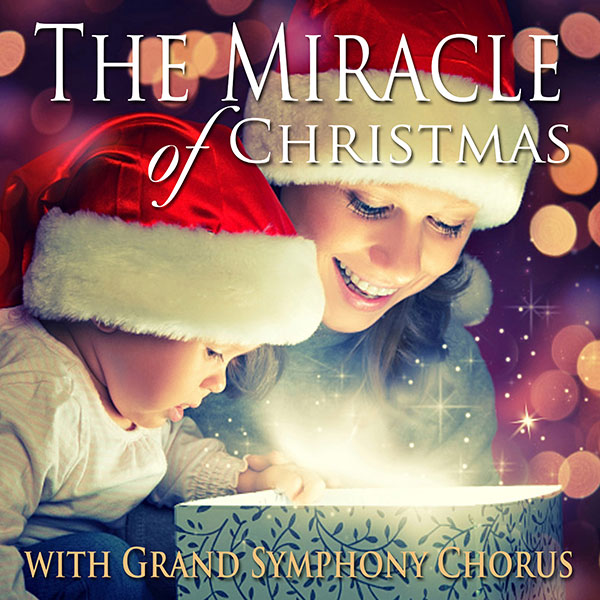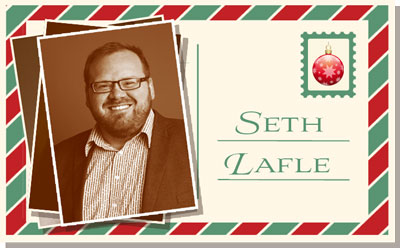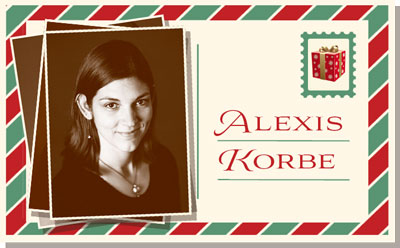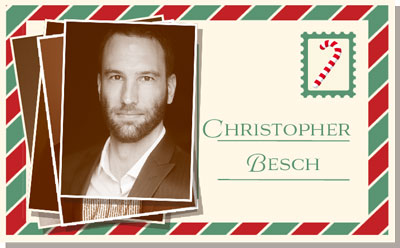

Concert 2
The Miracle of Christmas
December 1, 2022 at 7:30 PM
Cailloux Theater – Kerrville, Texas
Click here for the concert program
Broughton/Arr. Vinson – Miracle on 34th Street Overture
Silvestri – A Christmas Carol (Main Title)
Hinds – A Children’s Hannukah
Christmas Carol Sing-Along
Handel – Messiah (Part 1 and the Hallelujah Chorus)
Guest soloists and the Grand Symphony Chorus, soloists
Christmas and the holidays are a miraculous time for children of all ages. The mystery of lights, festivity, sacred services, family gatherings, and gift-giving all contribute to the excitement and anticipation associated with Christmas. The music from the 1994 remake of the classic movie, Miracle on 34th Street captures the mysticism of the season with a wonderful score by Bruce Broughton. Dicken’s A Christmas Carol is the inspiration for the 2009 movie of the same name with its brilliant and almost-mystical film score by Alan Silvestri.
Children’s celebrations are seen the world over at this time of year, and Hanukkah is an especially wonder-filled time for children as they light the candles in commemoration of Jerusalem’s recovery. We feature Hinds’ work A Children’s Hannukah as we join in celebration with our Jewish friends of the miracle of the feast of lights.
The second half of our concert brings back Handel’s Messiah with a cast of vocal soloists, orchestra, and our Grand Symphony Chorus. We will offer Part 1 and the Hallelujah Chorus of Messiah.
Concert Notes
December 1, 2022 – With Grand Symphony Chorus
Christmas and the holidays are a miraculous time for children of all ages. Its lights, festivity, sacred services, family gatherings, gift-giving, and sense of expectation are all a part of the excitement and associated with Christmas. The dying of the old year and anticipation of the new one have been celebrated by cultures around the world and throughout history, and music is a natural part of such celebration. The opening portion of our concert brings together a group of shorter compositions of the season. The second half of our concert brings back Handel’s Messiah with a cast of vocal soloists, our orchestra, and our Grand Symphony Chorus. We will offer Part 1 and the “Hallelujah Chorus” of Messiah.
Broughton/Arr. Vinson – Miracle on 34th Street Overture
A fixture of the holiday season since the 1940s, “Miracle on 34th Street” was remade in 1994 with Bruce Broughton providing the score. Broughton has composed music for television and film for half a century, including Westerns, adventure films, and comedies. His overture to this new version launches us into a magical realm.
Silvestri – A Christmas Carol (Main Title)
At 22, Alan Silvestri appeared in Los Angeles as a jazz guitarist without clear career plans, though he had studied for two years at Berklee School of Music. He produced his first film soundtrack before he even thought of himself as a composer. Ultimately teaming with Robert Zemeckis on films such as “Forrest Gump,” “The Polar Express,” and the “Back to the Future” series, Silvestri has earned two Oscar nominations for his scores. He produced the score for this 2009 quasi-animated version of the Dickens’ Christmas classic.
Hinds – A Children’s Hannukah
The eight days of Hanukkah celebrate the persistently burning candles in the temple of Jerusalem in the second century BCE after the Maccabean forces had defeated the Seleucid occupiers and cleansed their holy sanctuary. This joyous restoration event and miracle of light is celebrated in festive meals, gifts, and song in Jewish homes. Hinds’ “A Children’s Hannukah” brings together several of these lively tunes.
Christmas Carol Sing Along (arr. Cerulli)
We move to intermission by joining together in our own song!
Intermission
Handel – Messiah (Part 1 selections and Hallelujah Chorus)
With Grand Symphony Chorus and soloists.
With the first solemn chords and ensuing dance motif, we are introduced to a baroque oratorio that has become one of the best-loved masterpieces of the canon. Its music brings a vitality and strength necessary to match its theme—the prophetic utterances, incarnation, suffering, and resurrection of the long-sought Messiah. Georg Friedrich Handel (1685- 1759) was German-born and studied music both there and in Italy, but as Kapellmeister of the Elector of Hanover, who became George I of England in 1714, he spent the larger part of his life in England, where he became a citizen and found both a compatible home and musical public.
Handel was a prolific composer of operas in the Italian style, but the English taste for these faded. Oratorios based on Biblical themes proved much more satisfying to this musical audience, and Handel proved a master of this medium as well. The story of his composition of Messiah is famous. Its libretto, addressing the prophecies and the birth of Jesus, the passion of the Christ, and resurrection and glorification, was selected from scripture by Charles Jennens, a good friend of Handel, though Jennens was unhappy that the composer was unwilling to incorporate his musical suggestions. It took all of 24 days in the summer of 1741 for Handel to compose the entire work. As was his custom, he borrowed arias and choruses from his own compositions in places. Most would agree that nearly three centuries bear out the soundness of Handel’s musical setting for the great Biblical narrative.
Actually, the composer continued to make changes in his music in the following months and after early performances. Messiah was first performed in 1742 in Dublin for the benefit of three charities. It was received with great warmth from the beginning. Soon it became a standard work at festivals and musical events. From Handel’s modest scoring, the size of productions grew, and the nineteenth century especially tended to expand instruments, musicians, and singers to sometimes absurd lengths. A counter movement in the twentieth century sought to follow original instrumentation as closely as possible. Other composers and arrangers have “helped” interpret or embellish Handel through the centuries. Messiah is performed and enjoyed in many formats, from period reproductions to grand events with hundreds of musicians, but its authority and appeal are unmistakable in whatever form.

Hailed by the New York Times as “a voice with considerable warmth,” lyric-soprano Sarah Davis has been recognized as a gifted performer both on the recital and operatic stage. She has premiered works by American composers: John Harbison, Barbara White, Eliza Brown, Eric Nathan, and Elliott Carter at Tanglewood Music Center, SongFest, Radio France, and Network for New Music. In the month prior to the pandemic taking hold, Ms. Davis performed a glorious Liederabend at Schwartzsche Villa in Berlin, Germany, singing Canteloube, Rachmaninov, Sibelius and Berg’s Sieben Frühe Lieder with pianist Chris Cartner. Notable concert & operatic roles credits include Verdi Requiem, Mahler Symphony No. 2, Brahms Requiem, Beethoven Missa Solemnis, and Ninth Symphony, Mimi in La Boheme, Antonia, Fiordiligi, Pamina, Cendrillon, Susannah (Floyd), Anne Trulove, as well as Krystyna Zyvulska from Heggie’s Another Sunrise. Sarah holds degrees from Trinity University and the Peabody Conservatory of Johns Hopkins University. She currently resides in Comfort, Texas.

Tenor Seth Lafler is in his ninth year as the Director of Choral Music at Tivy High School in Kerrville, Texas, after having taught middle school choir in Kerrville ISD and Georgetown, Texas for three years. He graduated with an M.Ed. in Administration from Lamar University in August 2022. Lafler is a proud alum of Texas State University where he earned a Bachelor of Arts in Music. He recently established the Don and Patty Cooper Choral Music Education Endowed Scholarship at Texas State University and serves on the Texas State University Leadership Council. Lafler is the adult choir director at First Presbyterian Church of Kerrville and maintains an active performance schedule with San Antonio Chamber Choir. His professional affiliations include memberships in Texas Music Educators Association, Texas Choral Directors Association, American Choral Directors Association, Texas Music Administrators Conference, Barbershop Harmony Society, and Phi Mu Alpha Sinfonia. He resides in Kerrville with his wife Katie, 8th-grade English teacher, and their two dogs, Harper and Archie.

Alexis Korbe is a Lyric Mezzo Soprano, Flutist, and Collaborative Pianist. Originally from Hays, Kansas, she holds a Bachelor of Music in Flute Performance and a Bachelor of Arts in French from Fort Hays State University. Alexis finished a Master of Music in Flute Performance with Dr. Frances Shelly in 2014 as well as a Master of Music in Opera Performance with Dr. Pina Mozzani in 2016. In 2018, she earned an Artist Diploma in Voice and Graduate Teaching Certificate at the University of Illinois at Urbana-Champaign. Alexis also performed as the alto soloist for the Baroque Artists of Champaign-Urbana’s Gala Recital featuring Haydn’s Lord Nelson Mass. Most recently, she has performed with the Opera San Antonio chorus in several operas and freelanced as an accompanist/vocal coach. Some of Alexis’s favorite roles have been Prince Orlovsky in Strauss’s Die Fledermaus, Miss Effie Belle Tate in Floyd’s Cold Sassy Tree, and the Witch in Humperdinck’s Hansel and Gretel. She also played the role of Maddalena in the Rigoletto quartet for Lyric Theatre-Illinois’s production of Viva Verdi!

Bass-baritone Christopher Besch has performed in eight countries with such conductors as Lorin Maazel, Leonard Slatkin, and Jeffrey Thomas. He has been described as having “a commanding stage presence and rich resonance of deep bass sound” (DC Theatre Scene). Stage engagements have included Figaro in Le Nozze di Figaro with Opera Colorado, Frederik in Sondheim’s A Little Night Music with the Castleton Festival, Ashby in Puccini’s La Fanciulla del West with Orquesta Sinfónica de Galicia, and many others. As a frequent performer of concert repertoire, Dr. Besch’s recent performances have included Beethoven’s Ninth Symphony with the Symphony of the Hills, Verdi’s Requiem with the Green Bay Civic Symphony, Haman in Handel’s Esther with Ars Lyrica. He is a frequent soloist with Bach Society Houston and appeared with them at the 2017 Leipzig Bach Festival in Leipzig, Germany, and will again during the upcoming 2023 festival. He currently serves as Lecturer in Voice at Texas State University and is the Voice Fellowship Coordinator for the Classical Music Institute in San Antonio area.
 Andrea Runnels is the Coordinator of Choirs for Schreiner University. She holds a Bachelors of Choral Music Education from Texas Christian University and a Masters and Ph.D in Choral Music Education and Fine Arts from Texas Tech University. Prior to her appointment to Schreiner, Dr. Runnels’ music career spanned 20 years throughout Texas where she began her career teaching elementary and secondary music, choral conducting for schools and churches throughout. Her experiences include working with renowned choral conductors such as Lara Hoggard, Ron Shirey and John Rutter. She was frequently invited to sing under Skitch Hendricks and perform with the New York Pops Concerts for over a decade. Runnels is known for her ability to connect school, community, and university choirs to create festivals and choirs to perform major works they ordinarily could not accomplish by themselves. In addition to teaching music, directing choir, leading clinics and conducting choirs, Runnels has also had an extensive career in sacred music, where she has served in various churches across the state in conjunction to her teaching assignments. Runnels is also an active music education researcher and presenter who specializes in sightreading techniques and best practices.
Andrea Runnels is the Coordinator of Choirs for Schreiner University. She holds a Bachelors of Choral Music Education from Texas Christian University and a Masters and Ph.D in Choral Music Education and Fine Arts from Texas Tech University. Prior to her appointment to Schreiner, Dr. Runnels’ music career spanned 20 years throughout Texas where she began her career teaching elementary and secondary music, choral conducting for schools and churches throughout. Her experiences include working with renowned choral conductors such as Lara Hoggard, Ron Shirey and John Rutter. She was frequently invited to sing under Skitch Hendricks and perform with the New York Pops Concerts for over a decade. Runnels is known for her ability to connect school, community, and university choirs to create festivals and choirs to perform major works they ordinarily could not accomplish by themselves. In addition to teaching music, directing choir, leading clinics and conducting choirs, Runnels has also had an extensive career in sacred music, where she has served in various churches across the state in conjunction to her teaching assignments. Runnels is also an active music education researcher and presenter who specializes in sightreading techniques and best practices.

